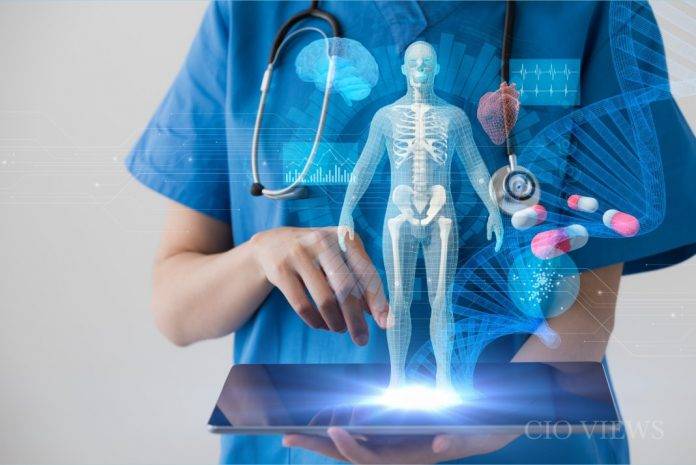
With manual work being taken care of, healthcare could greatly benefit doctors and patients alike. American medical costs hit a new record of $3.4 trillion in 2017, with the intervention of Artificial intelligence; healthcare could be made more cost effective, human and really adding “care” to health which is needed.
Artificial intelligence in healthcare can be defined as software and complex algorithms working in coalition to analyze complicated medical data. By doing so it mimics human behavior and functions and attempts to bring a paradigm shift to the healthcare industry – making life easier for patients and doctors alike.
With the help of machine learning, doctors would no longer have to type all the medical information themselves into patient files. This also helps patients get better access to their personal data.
The book Deep Medicine: How Artificial Intelligence Can Make Healthcare Human Again says health care industry must aggressively adopt artificial intelligence. The technology could reduce human errors thereby helping doctors take other major decisions that will save many lives.
It has been estimated that over 32% of the time, radiologists have wrongly cleared patients of diseases. Gastroenterologists have also been found to miss detecting small polyps that are equally pre-cancerous as bigger ones.
Deep learning and machine vision can help greatly in improving the situation at hand.
Arduous works like number and data crunching obtained from medical literature and from patients can be taken care of by Artificial intelligence. This would liberate the doctors greatly allowing them a more personalized time with their patients.
AI would also help to develop virtual medical coaches that give patients health advice on the diet the patient should be adopting to other simpler questions.
AI is just beginning to make it’s mark in the medical arena. It is not yet extensively used but does have a future. There is great scope in working out AI against security, privacy, data and all its components. A combination of this could perk up the healthcare sector and we will actually fewer burdened doctors, early retirements and perhaps a greater number of enrollments in medical schools.
In areas such as drug discovery, image recognition or reading text, AI could work well. It has already benefitted the healthcare workers who use AI-powered tools and devices. It has streamlined their workflow making it more logical.
AI is already performing well in certain areas such as,
- Robots performing surgery
- Clinical diagnosis and decision making
- Assistance from virtual nurses
- Automation of administrative tasks
- Image Analysis
- Precision Medicine
- Health Monitoring
- Drug Creation
- Medication management
- Treatment Design


















